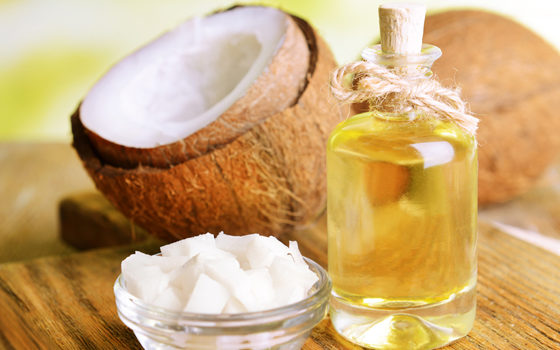I recently discovered 100% virgin coconut oil. Made from coconut meat, it’s sometimes called coconut butter because it’s solid at room temperature and becomes liquid above 26 °C. It’s mainly made of saturated fats, which are what makes coconut butter solid.
Virgin or refined?
The terms virgin or unrefined indicate that the oil has not undergone partial hydrogenation, unlike refined coconut oil. Try to use virgin coconut oil, because it contains different antioxidants than the refined version. Virgin coconut oil also maintains its coconut flavour and aroma, unlike refined coconut oil, which is tasteless and odourless.
Miracle product?
Many claim coconut oil is a miracle food that prevents a variety of ailments, such as cardiovascular disease. However, no study has yet provided clear evidence on the subject. Coconut oil should be used more for its aromatic rather than its therapeutic properties. The important thing is to use a variety of sources of fat and types of oils.
In the kitchen
You can use coconut oil to prepare and cook your meals. Plus it’ll make your kitchen smell great! If you sauté food in virgin coconut oil, cook it over medium heat, because coconut oil has a low smoke point. It smokes between 140 °C (280 °F) and 175 °C (350 °F). For comparison, extra virgin olive oil has a smoke point between 180 °C (356 °F) and 220 °C (428 °F). The smoke point is the temperature at which oil changes from liquid to smoke. When this happens, toxic compounds are created and the oil should not be consumed. Coconut oil can also be used in baking. You can easily use it instead of butter and give your cakes and cookies a coconut flavour. Just last weekend, I made some homemade pancakes for lunch and cooked them in coconut oil. The result was crêpes with a subtle coconut flavour, which I topped with bananas and pineapple. A tropical breakfast! What could be better on a cold winter morning? Rachelle Béry Nutritionist Team

